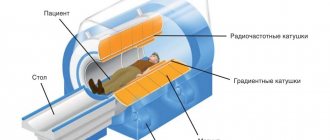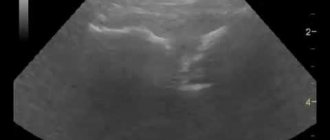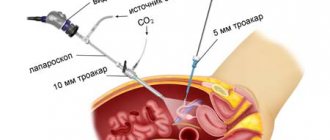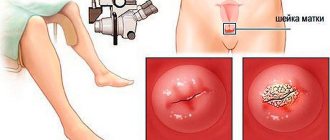What is tubal MSG?
Metrosalpingography (abbr. MSG) is a type of x-ray examination that uses the artificial contrast method. This makes it possible to understand in the future the condition of the fallopian tubes and the uterine cavity.
The use of the method makes it possible to determine whether there is an adhesive process in the pelvis, as well as whether there are any anatomical changes in the uterine cavity.
A study such as MSG of the fallopian tubes and uterus is carried out with preliminary anesthesia, which will eliminate the occurrence of pain during further manipulations.
MSG is performed in a regular gynecological office in a chair or in an angiographic operating room. Using bullet forceps (a special dilator used for a specialist to examine the vagina and cervix, a gynecological speculum), the doctor fixes the cervix.
Then, through the cervical canal, using a catheter, he injects a contrast agent in a volume of about 15 ml - it is with its help that an image can be obtained with details of the area to be examined. The following contrast agents are used:
- water-soluble - Gipak, Urografin, Verografin, Urotrast, etc.;
- fat-soluble - Iodolipol.
Urografin is a contrast for the procedure.
After the drug is administered, the first picture is taken, this happens precisely when the cavity of the uterus and tubes is slightly filled with a contrast agent, which takes about 3-5 minutes.
This will allow you to examine the internal contours of the organ as needed. After about twenty minutes, another picture is taken, for which more solution is added until the uterus and tubes are completely filled.
If necessary, a third photo can be taken.
Metrosalpingography allows you to find out the shape of the patient’s uterus, the condition of the tubes and their patency, as well as whether there are adhesions in the area in question.
MSG image: fallopian tubes with contrast.
Normal patency allows one to obtain a sufficiently clear image for further examination of the uterine cavity and tubes. In this case, a small part of the contrast agent enters the abdominal cavity, dissolving there. The remainder then comes out in the form of scanty discharge, usually not causing much discomfort to the woman.
MSG is carried out at a certain time of the cycle, namely in its first phase. This is due to the greatest information content and accuracy of the data obtained as a result of this procedure.
Difficulties cannot be ruled out during diagnosis. This can be caused by spasms of the initial part of the fallopian tubes, which occurs due to the patient’s emotional stress.
Physiological characteristics can also become a problem, for example, if a woman’s tubes are long and/or narrow. In this case, the diagnosis is clarified using endoscopy.
MSH can be prescribed to both inpatient and outpatient patients. The main conditions for this are the presence of indications that clearly correspond to the purpose of the procedure, and preparation for it, which, first of all, concerns passing the necessary tests.
Research methodology
The study of the fallopian tubes can be divided into two stages. At the first stage, the patient receives a contrast agent, which will show patency.
At the second stage, a direct examination of the pipes is carried out. It can be ultrasound (ECHO MSG) or x-ray.
Ultrasound metrosalpingography
Before the study, women undergo a standard examination. Then a saline solution is injected into the uterine cavity, which, under pressure, penetrates into the free areas, filling the uterus and fallopian tubes.
The study then continues using an ultrasound machine. The woman's lower abdomen is lubricated with a special gel and the uterine cavity and appendages are examined with a sensor.
Ultrasound does not pose any danger, and the examination itself is quick and painless.
The results are displayed on the screen in real time; if necessary, the doctor will look at the appendages in a different projection and zoom in on problem areas to detail the pathology.
Selective (X-ray) metrosalpingography
The procedure begins with a gynecological examination - it is carried out as standard, without complex procedures.
After this, the doctor inserts a cannula into the uterine cervix and administers a contrast agent.
This is a special composition of the liquid that blocks the rays of the X-ray machine and helps to see the outlines that fill the cavities.
Currently, iodine-containing liquids “Verografin”, “Ultravist”, “Urografin” and others are actively used.
After some time, the doctor will take x-rays and remove the cannula.
The radiocontrast substance is subsequently absorbed into the blood on its own, after which it is excreted in the urine. The liquid does not cause any harm to a woman’s body.
No anesthesia is required during the procedure. The sensations are unpleasant, but not painful and are more reminiscent of a routine examination rather than a complex intervention.
If necessary, a woman can ask for anesthesia if she feels discomfort when the cannula is inserted into the uterine cavity.
After the examination, there is no pain left; sometimes there is a pulling sensation in the lower abdomen, which disappears within half an hour.
Preparation for MSG and conditions for the procedure
So, how to prepare for MSG? First of all, for fallopian tube MSH you will need to undergo some tests, namely:
- complete blood count (CBC, clinical/biochemical blood test);
- general urinalysis (UCA);
- blood test for the presence/absence of HIV;
- flora smear (or general smear;
- blood test for the presence of markers of viral hepatitis (B, C).
The listed tests are only a small part of the preparation that precedes metrosalpingography.
It can be added that a number of preparatory measures that a woman will have to go through is determined by the need to exclude any side effects from her body, i.e. the data from this examination will be objective and as accurate as possible.
Conditions for the MSG procedure:
- conducting MSH during the first phase of the cycle, that is, most often it is 6-12 days, the main condition is the absence of inflammatory processes in the pelvis;
- use of contraception during the menstrual cycle;
- exclusion of any type of products that contribute to gas formation at least one day before the test;
- emptying the bladder before the procedure.
The type of MSG procedure can be selective, in which a radiocontrast agent is used, or ultrasound.
Pregnancy after laparoscopy
After laparoscopy, you can get pregnant within a few months, but immediately after the operation you need to completely abstain from sexual intercourse for 2-3 weeks. After this, you can plan to conceive. Pregnancy after laparoscopy is quite possible in the near future.
Women who become pregnant after laparoscopy within several months are observed by a gynecologist. Often pregnancy is accompanied by drug treatment; the woman takes medications to support the normal hormonal levels of pregnancy. If pregnancy does not occur after laparoscopy, this operation can be repeated several times.
Selective metrosalpingography
This type of MSG can be considered as the most modern option for conducting this type of research. It uses an ultra-thin conductor equipped with a tube, due to which it is possible to accurately introduce a contrast agent into the desired areas of the uterine cavity or fallopian tubes.
This feature of the procedure eliminates the need to tightly fill the uterus, applying high pressure to the contrast agent. The effect on the body, in this case, is minimal. In addition, the risk of complications is reduced.
This study is indicated especially for young women. Its main purpose is to assess the patency of the fallopian tubes, as well as to search for the reasons that could cause infertility.
As a result of the procedure, no cases of severe consequences, namely the appearance of allergic reactions caused by individual intolerance to the drug used, were identified.
Ultrasound metrosalpingography
This version of the procedure is used to study the patency of the uterus and tubes, as well as in situations where there are contraindications for performing MSG in its standard form.
This option differs from the X-ray method of MSG in that it uses a different type of solution. In general, the specificity of the method, which provides visualization of the organs under study, also varies.
In particular, a saline solution is used here, preheated to achieve normal body temperature. Introduction into the uterine cavity is carried out using appropriate instruments, ensuring the required level of pressure.
Ultrasound allows you to assess the condition of the uterus and tubes, while the use of the method does not have a negative impact on the general health of the patient.
After assessing the condition of the organs and their patency, the solution used is eliminated. The procedure is now complete.
Indications for MSG
The main indication for the tubal MSG procedure, as mentioned above, is the inability to become pregnant for a long period of time.
Metrosalpingography is performed as part of the primary diagnosis of infertility in patients, which makes it possible to clarify the main factor that provoked it.
Let us highlight the main indications for which metrosalpingography is prescribed:
- absence of pregnancy within 1 year from the start of planning;
- the presence of tumor processes in the fallopian tubes and/or uterus;
- the presence of malformations in the genital organs (fallopian tubes, uterus - changes in size, shape, internal lumen);
- the presence of tumor processes in the genital organs (fibroids, etc.);
- the need to evaluate the final results of treatment of the patient’s fallopian tubes, which also applies to the results of any surgical interventions aimed at restoring tubal patency;
- identifying the patient’s presence of adhesions affecting the uterus;
- delayed sexual development, which is important for girls;
- suspicion that the patient has tuberculosis of the internal genital organs;
- diagnostic detection of endometriosis in a patient.
In addition to the indications, there are also contraindications for which metrosalpingography is not performed; we will outline them below:
- detected pregnancy in the patient;
- insufficient cleanliness of the vagina, determined on the basis of the results of the corresponding smear;
- recent acute genital infections;
- the presence of inflammatory infections identified as a result of general and biochemical blood tests;
- the presence of inflammation in the body in an acute form of manifestation (intestinal infection, respiratory infection, etc.);
- individual hypersensitivity to drugs used for MSH.
Contraindications
MSG is not done for infections and inflammations of the vagina or uterus. The fact is that in such a situation there is a high risk of infection of the appendages and peritoneum. Therefore, when gynecological diseases are detected, they are first treated and only after that metrosalpingography is performed.
The study is contraindicated during menstruation or bleeding of unknown etiology. Pregnancy is also a prohibited period for diagnosis.
During the procedure, an iodine-based contrast agent is used. Therefore, if the patient is hypersensitive to this component, an alternative method of checking the fallopian tubes should be chosen: Echo-HSG, fertiloscopy, laparoscopy or MRI.
MSG results: consequences and complications
Carrying out MSG is, unfortunately, associated with some consequences that manifest themselves in varying degrees of intensity.
The consequences that the patient may encounter after the procedure in question can be described as early and late.
The most dangerous are the early ones; they make themselves known after a few hours, sometimes days. Let us outline the main problems based on early manifestations:
- entry into the lymphatic or blood vessels of the contrast agent, resulting in the development of lymphangitis or thrombophlebitis;
- improper manipulation of medical instruments can cause perforation of the inner wall of the uterus or fallopian tube;
- Individual intolerance to the contrast agent can provoke the development of allergic reactions.
As for the late consequences of the MSG procedure, the following problems may be observed a few days after it:
- exacerbation of chronic diseases of the genital organs;
- infection cannot be excluded, which, in turn, can lead to the development of acute pathologies;
- in rare cases, patients experience an allergic reaction.
The following symptoms require mandatory seeking of specialized medical care:
- pain in the lower abdomen, accompanied by bleeding for more than 3 days;
- allergic reactions;
- high temperature around 38.
Consequences
With proper preparation for MSG, the likelihood of complications tends to zero. It is important to observe aseptic conditions during the manipulation process. Unpleasant consequences of MSH usually develop in those women who have not previously been tested or use the services of unqualified specialists:
- infection - when an x-ray substance passes through the oviduct from the uterus to the ovary, an infection can be spread;
- trauma – careless handling of the catheter can lead to damage to the uterine mucosa or cervical canal, which will also be complicated by inflammation;
- pain - appears for various reasons, including due to spasm of the cervix and uterus;
- bleeding - may occur due to damage to the integrity of the tube or reproductive organ;
- irradiation - diagnostics involves the use of an X-ray machine, which negatively affects the condition of cells.
You can plan a pregnancy after MSG in a month if both tubes are passable.
If the diagnosis is disappointing, the woman is recommended additional treatment, which involves restoring the functionality of the oviducts. During the procedure, it is recommended to relax as much as possible, despite the discomfort, since increased tension in the pelvic muscles can lead to distorted results. Share:
Reviews about the procedure
Generally, reviews of the MSG procedure from those who have gone through it are positive and filled with certain hopes.
Basically, before women undergo this procedure, they have certain fears associated with undergoing it. It is other people's reviews about the procedure, if these are not just assumptions, that become their cause.
A separate role is played by which doctor will perform the procedure, as well as, apparently, his attitude to the work and to patients in general.
For example, some almost describe with delight the passage of a procedure, the appropriate mood for which was created by the doctor who relieved them of fears.
As a result, it often turns out that a woman, driven by fear, waiting for it to be “very painful,” was surprised to hear that the procedure was completed.
Others, unfortunately, are not so lucky - they have to note the pain of the procedure, again, the fear of the manipulations being performed, which may even be somehow connected. Doctors themselves have to note that the presence of discomfort and pain in patients is observed more often than their absence.
Of course, in any case there is discomfort associated with what is happening.
The main recommendations for women who have undergone MSG are to stock up on pads. This is not surprising; liquid will come out for some time.
As for such a question as how you feel after MSG, everything is different here. Some people simply do not have negative symptoms, that is, there is no pain, dizziness or anything scary.
Some, on the contrary, advise not to refuse the help offered by the nurse, because even getting to the room due to the same dizziness after MSG can be problematic.
On the day after the MSH procedure, discharge is observed, and severe weakness may be noted. The psychological state of the patients, dictated by the fears preceding the procedure, has a greater influence on the general condition, even in the following days.
There are often no side effects from MSH in terms of discharge, possible abdominal pain or fever. MSH does not affect the cycle and menstruation, no disruptions should be expected.
Symptoms
Manifestations of fallopian tube obstruction depend on the reasons that provoked the development of the pathological process.
Signs:
- Absence of pregnancy for 12 months with regular sexual activity without contraception.
- Nagging or acute pain in the lower abdomen, which manifests itself intensely during physical activity, sex, sudden movements, increased temperature, mucous, foamy, purulent vaginal discharge - symptoms occur during acute and chronic inflammatory processes.
- Pain in the lower abdomen against a background of normal temperature is a sign of adhesions.
- Heavy bleeding, severe pain in the abdomen and lower back, decreased blood counts, and a significant increase in temperature are symptoms of an ectopic pregnancy; immediate medical attention is required.
Obstruction of the fallopian tubes may be indicated by an irregular cycle, heavy or scanty menstruation, severe PMS, painful urination or discomfort during bowel movements.
If you are often bothered by such symptoms, be sure to consult a gynecologist.
Bottom line
The MSG procedure can take place in different ways. Another thing, of course, is the results. Here, nothing depends on anyone; you just have to take them for granted, thinking about what to do next.
Sometimes doctors themselves point to certain statistics, in which often women with infertility, undergoing MSG, become pregnant, and in the same cycle in which this procedure occurred.
Perhaps it’s a matter of self-hypnosis or an attempt by doctors to set their patients up for the best, in any case, everything is individual, and any statement, unfortunately, does not always work, it is important to understand this too. In any case, a positive attitude plays a big role and you should hope for the best.











